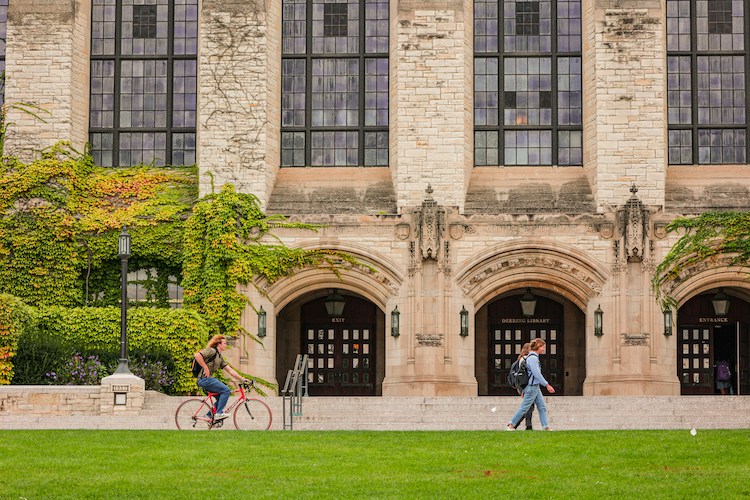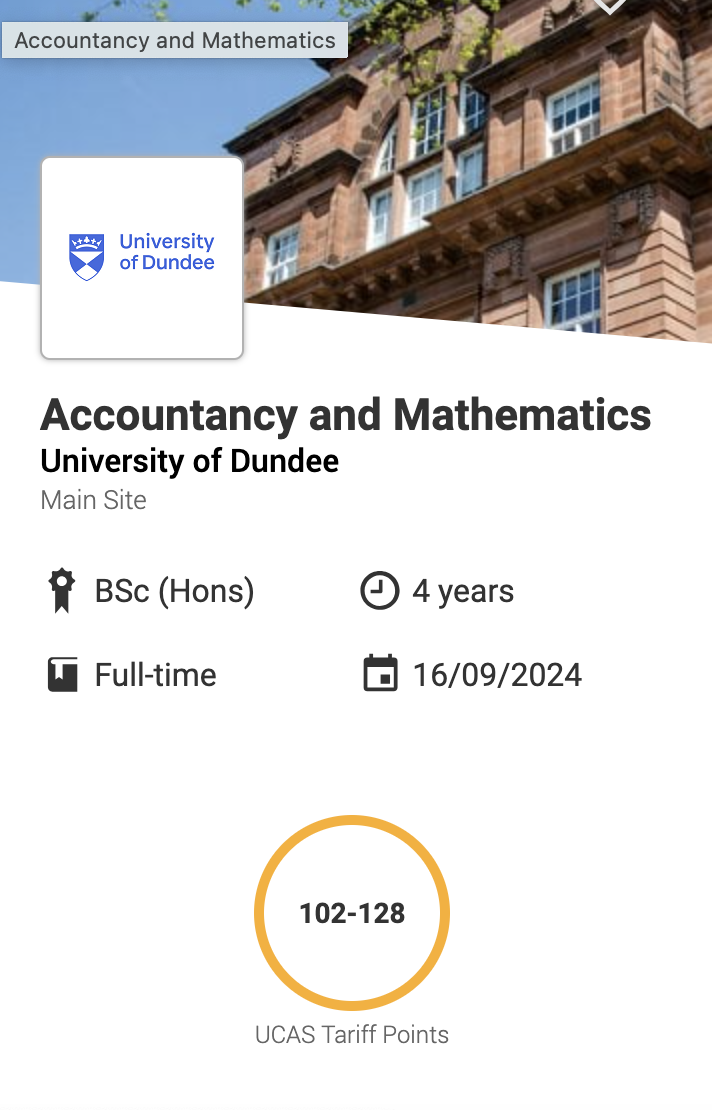
Our complete guide to contextual offers for university is for anyone who needs to know:
- what are contextual offers?
- who gets contextual offers?
- how do contextual offers work?
What are contextual offers for uni?
If you apply to a university then the course will usually have a ‘typical’ offer. This refers to the offer they typically make to applicants and refers to a set of grades.
The contextual offer differs from a standard offer because it takes account of a student’s background (or context). They might come from an under-achieving school, or have spent time in care, or have some other experience that would make it harder for them to meet the ‘typical’ offer. They’re designed to make the uni admission process fairer for everyone.
Contextual offers are different at different universities and courses. They will often be 1 to 3 grades lower than a typical offer, so a uni that would usually offer a place to students achieving grades of AAA might make a contextual offer of AAB or even BBB.
How do you apply for a contextual offer?
The good news is that you don’t actually need to apply for a contextual offer.
Each university has its own criteria for contextual offers, and the admissions team will be able to look at a UCAS form and use the information there to know if a student will be eligible for a contextual offer. This process is mostly automatic and the student themselves doesn’t need to do anything.
What do you need to do? Make sure you complete all sections of the UCAS form fully. You can also ask your school or college to mention any relevant facts in your reference, such as caring responsibilities or personal circumstances.
What are the conditions for a contextual offer?
Every university sets it own criteria for a contextual offer, and they will differ slightly from place to place. Some unis might make contextual offers if you meet one of the conditions, others might ask that you meet two or three.
Common factors in deciding a student’s eligibility for a contextual offer include:
- Relatively few people from your school go on to higher education, indicated by a POLAR score of 1 or 2.
- You live in an area of social deprivation, as indicated by an IMD Score of Q1 or Q2
- You’ve spent time in local authority care
- You’re entitled to free school meals
- You have applied for asylum
- You’re the first person in your family (not including siblings) to go to university
- You are estranged from your parents
- You have taken part in a pre-university scheme as part of a widening participation programme
It’s important to note that not every university will look at all of these factors, and they won’t all treat them in the same way.
Exeter University, for example, makes contextual offers that are two grades lower if you are entitled to free school meals, but three grades lower if you are leaving local authority care. Manchester Uni makes contextual offers to students based on their home and school postcode, but these are only one grade lower than the standard offer.
So it’s important to check out the universities that offer your chosen course and understand if you’re eligible for a contextual offer before you apply.

Am I eligible for a contextual offer?
Once you’ve checked out potential courses and universities and understood how they make contextual offers, there are a couple of useful websites that you can use.
POLAR postcode checker: check your home and school postcode.
IMD quintile checker: a tool to find the index of deprivation data
Can you get a contextual offer for mental health?
In general, mental health is not considered to be a reason for giving someone a contextual offer.
You do have the option to share information about a mental health condition on your UCAS form, but this will NOT be used as part of your application process. It’s simply there so that if a university makes you an offer, they can follow up to see what support might need to be put in place.
If your mental health is linked to a diagnosed condition that would be classed as a disability, then you may quality for an offer at some establishments.
Which universities offer contextual offers?
These days most unis make contextual offers. Some will offer lower grades, some might offer guaranteed interviews, while some will offer access to a foundation course. It depends on the uni, and the course.
If you want to find contextual offer information about a specific uni, the best thing is to find the information on the uni’s website. Some of the most popular university policies can be found below:
- Durham University
- Imperial
- Kings College London
- Lancaster University
- LSE
- St Andrews University
- UCL
- University of Bath
- University of Birmingham
- University of Bristol
- University of Edinburgh
- University of Exeter
- University of Glasgow
- University of Manchester
- University of Oxford
- University of Warwick
What is a typical contextual offer?
A contextual offer – which may also be called an adjusted offer – will most often be a lower grade requirement than a standard offer. On the UCAS website or university websites you’ll often see a “range” of grade requirements or UCAS points for admission to a particular course.

The higher grade or points will usually refer to the standard offer, while the lower grade or points is the contextual offer.
Most commonly adjusted grades will be up to two A-Level grades lower than the standard grade, but it can also be one or three grades.
Are you guaranteed a contextual offer?
Which medical schools have contextual offers?
- University of Aberdeen: Lower offer of AAB (or AAAB for SQA) + 10% increase in UCAT score and potentially a guaranteed interview.
- Anglia Ruskin: Lower offer of ABB.
- Aston: Lower offer of AAB.
- Birmingham: Lower offer of ABB.
- Brighton And Sussex: Lower offer of AAB. 30% of interviews reserved for those meeting criteria.
- Bristol: Lower offer of ABB.
- Dundee: Lower offer (unspecified).
- Edinburgh: 10% uplift in UCAT, and guaranteed invitation to assessment day.
- Exeter: Lower offer of AAC.
- Hull York: Lower offer of AAB or ABB (if you complete their pre-uni programme)
- Imperial College: Lower offer of AAA.
- Keele: Lower offer of AAB (or ABB + A* in EPQ).
- Kent and Medway: Lower offer ABB or ABB only if from partner school. Furthermore, predicted results are contextualised against the school’s average and used in interview selection.
- Lancaster: Lower offer of ABB.
- Leeds: Lower offer of ABB.
- Leicester: Candidates may be given preference for interview and offers.
- Manchester: Lower offer of AAB or ABB if in care or refugee.
- University of Nottingham: Lower offer of AAB.
- Plymouth: Lower offer of AAB
- Sheffield: Lower offer of AAB.
- Southampton: Lower offer of AAB.
- St Andrews: Lower grades of AAB.
- St George’s: Lower offer of ABB.
- UCL: Lower offer of AAB.
What you need to remember
Contextual offers are not an ‘easy’ route into university. They are simply there to recognise the additional challenges that some students face in meeting the requirements of a standard offer.
For competitive courses, it can still be as difficult to get an offer as for any student – it’s important to think about creating a competitive application with a great personal statement and the right super curricular activities. If you have any questions about our guide to contextual applications let me know!
[/et_pb_text][/et_pb_column]
[/et_pb_row]
[/et_pb_section]




